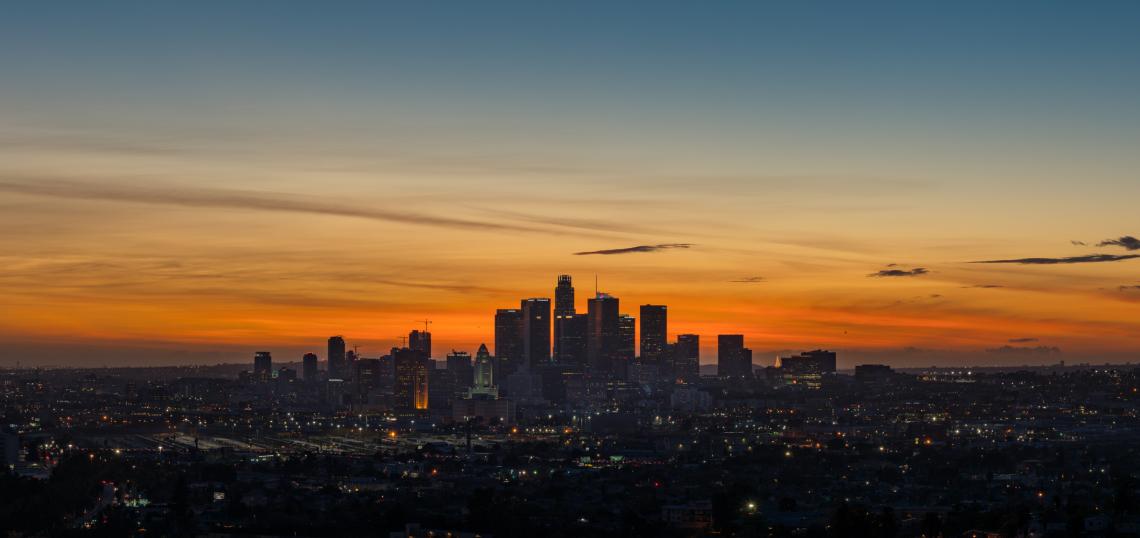Happy New Year!
Things to read from the past week:
- COVID-19 has stolen lives, broken families, widened the wealth gap and rewired life in East L.A.: "It has been 284 days since California first went into lockdown and here in East L.A. — a hot spot of infection — nearly every street corner holds some sign of the virus that has stolen more than 24,000 lives statewide, widened the wealth gap and rewired the rhythms of how we mourn, learn, work and worship." (LA Times)
- How Newport Beach ended up with 2 affordable housing units in 8 years: "The coastal community was called out in a state audit as one of many troubling flaws contributing to California’s affordable housing crisis. Researchers say a statewide planning process has allowed wealthier cities to lobby for fewer housing units than inland and less-wealthy cities. A new system is underway to bring more equity, but will it be strong enough to resist NIMBYism?" (CalMatters)
- Editorial: SoCal is losing its fight against smog. Things have to turn around in 2021: "For a brief moment this year, Southern Californians got a glimpse of what clean air could look and feel like. During the first COVID-19 pandemic shutdowns in the spring, the dramatic drop in vehicle pollution combined with stormy weather to help clear out the region’s notoriously smoggy, hazy air, leaving blue skies and crisp vistas....It didn’t last long. In fact, 2020 ended up being one of Southern California’s smoggiest years in decades, The Times’ Tony Barboza recently reported. There were 157 days when the region exceeded the federal health standard for ozone pollution, the main ingredient in smog. That’s the most since 1997. The region has also had more than 30 days of excessive fine-particle pollution, or soot." (LA Times)
- Los Angeles is America’s new coronavirus hot spot. Urban sprawl might’ve played a role.: "The coronavirus is anything but an equalizer. It has exacerbated hardships for low-income families, who have lost their livelihoods and lives. And in major US cities, from Atlanta to New York City, working-class communities of color have experienced higher infection and mortality rates, particularly in high-poverty regions. The differences in these rates, researchers said, could be attributed to factors like household crowding, proportion of essential workers, and access to testing and health care. When it comes to Los Angeles, certain pockets are not just denser, but also poorer, with high rates of poverty and homelessness and a large population of essential workers that have been hardest hit by the virus." (Vox)
- A Downtown in Downtown: Los Angeles’s Manifest Destiny: "What it does do is alter downtown L.A.’s DNA, shifting enough chromosomes around so that, going forward, the city — conducting business as usual but without councilmembers putting their fingers on the scale — can grow in a healthier and more robust way through corrective and directive planning. It’s an incremental plan that is at once modest and ambitious, proposing a more organic, integrated downtown ecosystem engineered to achieve critical mass. Remodeling the code promises to remodel downtown and, with it, Los Angeles. Angelenos may at last be able to retire the old saw that Los Angeles is a collection of 100 suburbs searching for a city." (LA Review of Books)
- Hollywood office campus sold to movie producer and partner real estate developer: "An office campus across from Sunset Las Palmas Studios in Hollywood has sold for $186 million to a partnership between producer-investor Russell Geyser and office landlord and developer LPC West — a notable deal at a time when much of the commercial office market is reeling from vacancies brought on by the pandemic and recession." (LA Times)
- 2020 in review: a year like no other for Metro: Metro takes a look back at the year that was (The Source)
- How the pandemic led to a rare success in California’s effort to house the homeless: "Project Homekey buys both motels and other types of buildings, and will eventually retrofit them for permanent housing. Converting motels is not a new idea, but the speed and flexibility the state offered local governments has resulted in one of the largest expansions in shelter for homeless people ever. Local officials credit a litany of factors, including the simplicity of the financing and the waiving of a series of regulations, including the California Environmental Quality Act (CEQA)." (LA Times)






